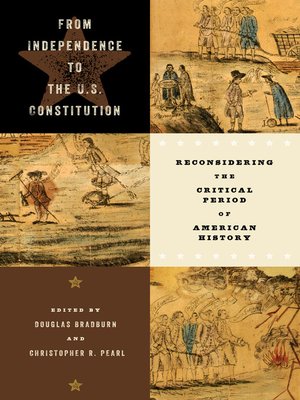From Independence to the U.S. Constitution
ebook ∣ Reconsidering the Critical Period of American History · Early American Histories
By Douglas Bradburn

Sign up to save your library
With an OverDrive account, you can save your favorite libraries for at-a-glance information about availability. Find out more about OverDrive accounts.
Find this title in Libby, the library reading app by OverDrive.



Search for a digital library with this title
Title found at these libraries:
| Library Name | Distance |
|---|---|
| Loading... |
The "Critical Period" of American history—the years between the end of the American Revolution in 1783 and the ratification of the U.S. Constitution in 1789—was either the best of times or the worst of times. While some historians have celebrated the achievement of the Constitutional Convention, which, according to them, saved the Revolution, others have bemoaned that the Constitution's framers destroyed the liberating tendencies of the Revolution, betrayed debtors, made a bargain with slavery, and handed the country over to the wealthy.
This era—what John Fiske introduced in 1880 as America's "Critical Period"—has rarely been separated from the U.S. Constitution and is therefore long overdue for a reevaluation on its own terms. How did the pre-Constitution, postindependence United States work? What were the possibilities, the tremendous opportunities for "future welfare or misery for mankind," in Fiske's words, that were up for grabs in those years? The scholars in this volume pursue these questions in earnest, highlighting how the pivotal decade of the 1780s was critical or not, and for whom, in the newly independent United States.
As the United States is experiencing another, ongoing crisis of governance, reexamining the various ways in which elites and common Americans alike imagined and constructed their new nation offers fresh insights into matters—from national identity and the place of slavery in a republic, to international commerce, to the very meaning of democracy—whose legacies reverberated through the nineteenth and twentieth centuries and into the present day.
Contributors:Kevin Butterfield, Fred W. Smith National Library for the Study of George Washington at Mount Vernon * Hannah Farber, Columbia University * Johann N. Neem, Western Washington University * Dael A. Norwood, University of Delaware * Susan Gaunt Stearns, University of Mississippi * Nicholas P. Wood, Spring Hill College







